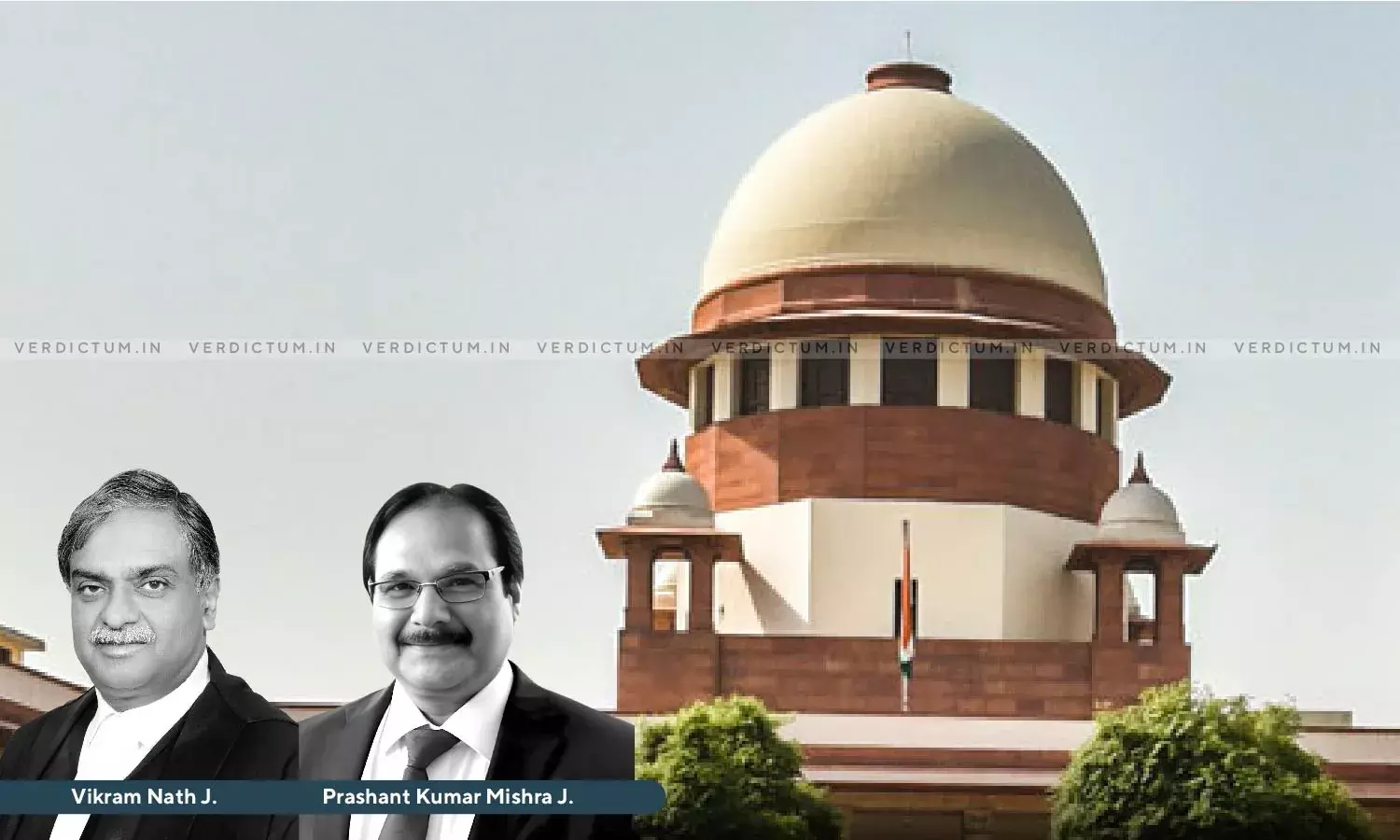Second Appeal Can Be Entertained By Punjab & Haryana HC Even Without Framing Substantial Question Of Law: SC Recalls Its Earlier Judgment
The Supreme Court reiterated that a second appeal under Section 41 of Punjab Courts Act, 1918, can be entertained by the Punjab and Haryana High Court even without framing a substantial question of law.
The Court recalled its 2019 judgment which wrongly decided that the Punjab and Haryana High Court travelled beyond its jurisdiction under Section 100 CPC by interfering with the First Appellate Court’s orders without framing a substantial question of law.
The petitioner preferred a review petition based on the Supreme Court's Constitution Bench judgment in Pankajakshi (D) & Ors. v. Chandrika & Ors. [(2016) 6 SCC 157], where it was held that since Section 97(1) of the Code of Civil Procedure (Amendment) Act, 1976 had no application to Section 41 of the Punjab Courts Act, 1918 (Punjab Act), therefore, Section 41 would necessarily continue as a law in force and an appeal before the High Court had to be heard within the parameters of Section 41 of the Punjab Act, and not under Section 100 CPC.
Justice Vikram Nath and Justice Prashant Kumar Mishra observed, “The provision contained in Section 41 of the Punjab Act, as reproduced above, does not mandate framing of a substantial question of law for entertaining the second appeal. Therefore, a second appeal under Section 41 of Punjab Act can be entertained by the Punjab and Haryana High Court even without framing a substantial question of law.”
Sr. Advocates P. S. Patwalia and Gagan Gupta represented the petitioner, while Sr. Advocate Manoj Swarup appeared for the respondents.
A suit for permanent injunction was filed by a brother asserting his ownership of the suit land. The core issue was a will which determined the share of the brothers in the suit land and therefore, the veracity of the same was in question.
The trial court dismissed the validity of the will presented on grounds of suspicious circumstances. This decision was overturned by the First Appellate Court, which found the will to be valid and awarded joint possession to the brothers. On appeal, the Punjab and Haryana High Court reinstated the trial court's decision, holding that mere registration of a will and proof of the same by attesting witnesses could not be treated to be sufficient to overcome the suspicious circumstances.
In 2019, the Supreme Court set aside the High Court’s judgment, holding that the High Court went beyond the scope and ambit of Section 100 of the Code of Civil Procedure (CPC) by re-appreciating the evidence and substituting its own opinion for that of the First Appellate Court without framing a substantial question of law.
The petitioner argued that the 2019 Supreme Court judgment erroneously applied Section 100 CPC to the case, ignoring the specific provisions of Section 41 of the Punjab Act.
“In Pankajakshi (supra), the Constitution Bench of this Court has held that substantial question of law may not be required to be framed in a second appeal before Punjab and Haryana High Court. However, the finding of fact recorded, cannot be interfered with even in terms of Section 41 of Punjab Act,” the Court remarked.
The Bench reviewing its previous judgment acknowledged an error apparent on the face of the record and held that the “judgment of this Court under review in Civil Appeal No. 6567 of 2014 has been wrongly decided holding that the Punjab and Haryana High Court has travelled beyond the jurisdiction under Section 100 CPC by interfering with the finding of fact recorded by the First Appellate Court without framing a substantial question of law.”
Consequently, the Supreme Court allowed the review petition, recalling the previous judgment, and decided to hear the civil appeal afresh on its merits.
Accordingly, the Supreme Court allowed the review petition.
Cause Title: Lehna Singh (D) v. Gurnam Singh (D) & Ors. (Neutral Citation: 2024 INSC 429)
Appearance:
Petitioner: Sr Advocates P. S. Patwalia and Gagan Gupta; AOR Ashwani Kumar Dubey; Advocate Deepak Malik
Respondents: Sr Advocate Manoj Swarup; AOR Avinash Gautam; Advocates Neelmani Pant and Apoorva Singh












